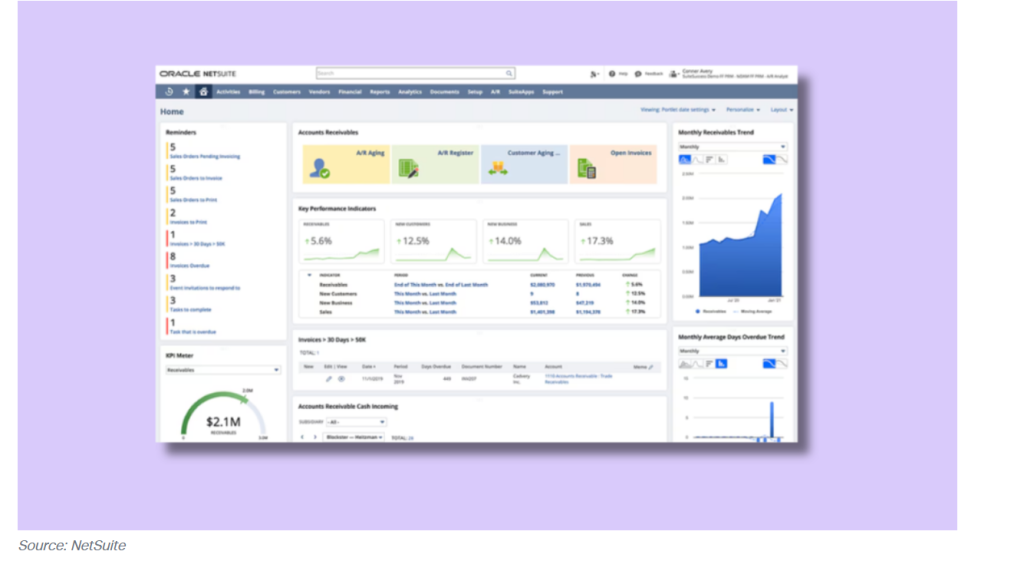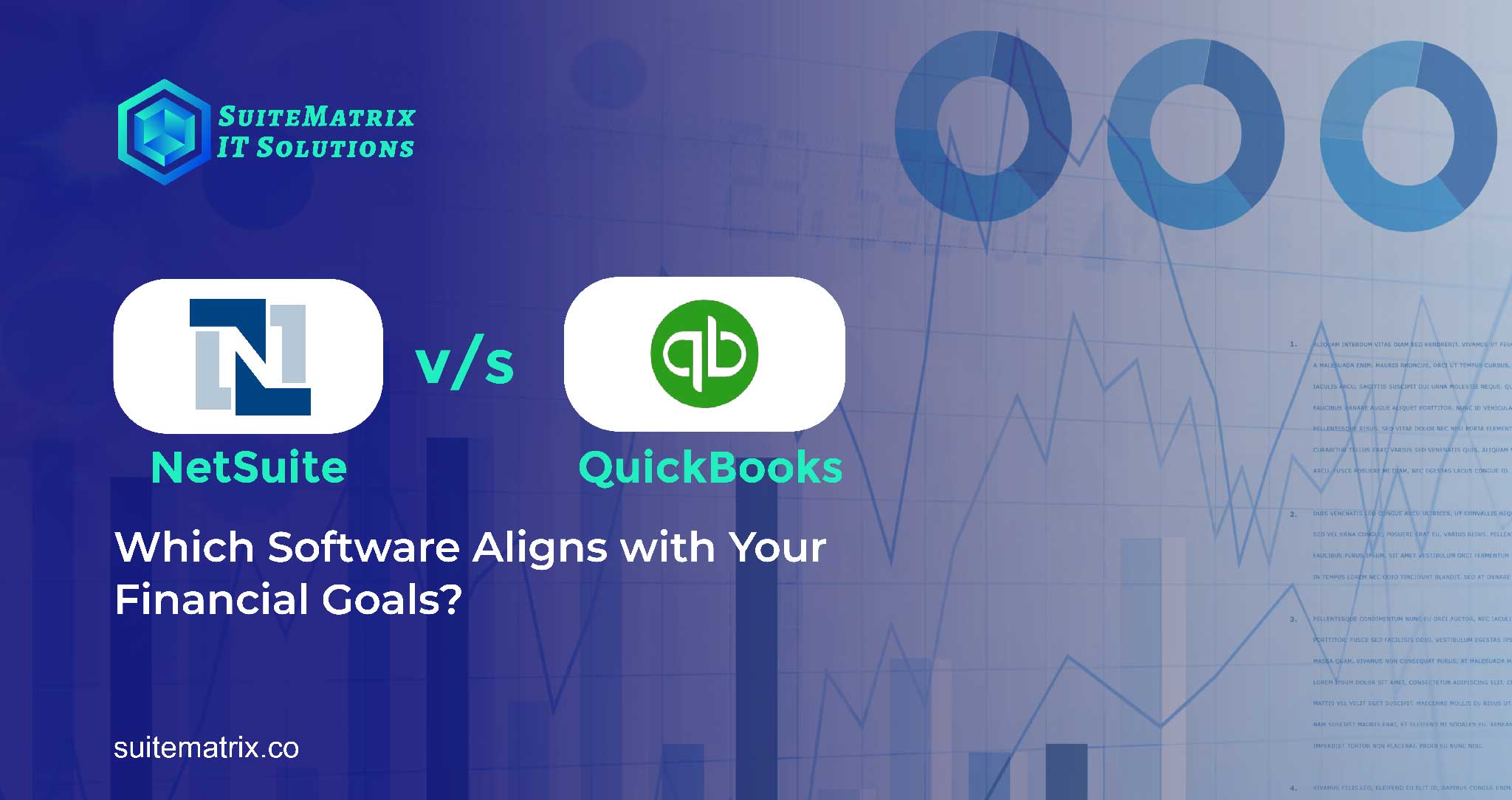Selecting the right bookkeeping software is essential for any business, from small startups to large enterprises. NetSuite and QuickBooks are two of the most widely used options available. While both provide robust financial management tools, they are designed to meet different business needs and sizes.
What is NetSuite?
NetSuite ERP is a cloud-based enterprise resource planning (ERP) system designed to manage a wide range of business functions, such as accounting, inventory, customer relationship management (CRM), and e-commerce. This all-in-one solution is primarily aimed at mid-sized to large businesses needing comprehensive and integrated systems to handle complex operations.

What is QuickBooks?
QuickBooks is a widely-used accounting software tailored for small- to medium-sized businesses. Renowned for its user-friendly interface and powerful accounting features, it is a preferred choice for business owners and accountants.
NetSuite Vs QuickBooks: Comparing the Features
| Feature | NetSuite | QuickBooks |
| Revenue Recognition | Automated revenue recognition for complex transactions | Limited, requires manual workarounds |
| Billing | Real-time visibility, subscription billing, consolidated invoicing | Basic billing, lacks advanced subscription billing |
| General Ledger | Customizable GL, multidimensional reporting | Simple chart of accounts, limited tagging system |
| Accounts Payable | Approval workflows, segregation of duties | Limited approval workflows, weaker control environment |
| Accounts Receivable | Comprehensive management with dashboards and KPIs | Basic AR, lacks advanced revenue management features |
| Fixed Asset and Lease Management | Full lifecycle management, supports new lease accounting standards | No fixed asset or lease management features |
| Inventory Management | Real-time tracking, warehouse management features | Basic inventory management, better suited for small inventories |
| Reporting | Extensive library with real-time reports, detailed drill-down | Standard accounting reports, limited flexibility |
| Customization | Extensive customization options | Limited customization compared to NetSuite |
| Scalability | Highly scalable, designed for growing and large enterprises | Scalable for small to mid-sized businesses, may need migration as you grow |

Which One Should You Choose- NetSuite or QuickBooks?
As your business grows, you’ll gain more customers, hire additional employees, process increasing amounts of data, and require greater automation. You’ll need an accounting software solution that boosts efficiency and serves as the foundation for your increasingly complex operations.
NetSuite ERP and QuickBooks are both excellent accounting software options for businesses of varying sizes. However, they each offer distinct advantages. NetSuite is ideal for companies with complex accounting and ERP requirements, whereas QuickBooks is well-suited for businesses needing straightforward accounting software to manage their finances.
When considering whether to upgrade, think about your current needs and scalability. Before choosing financial accounting software, consider your long-term business goals—QuickBooks might work as a quick fix, but it might not meet your needs during periods of growth.
Conclusion
Managing complex business challenges with spreadsheets and a patchwork of disparate applications often proves inadequate, which is why many companies transition from QuickBooks to NetSuite. If you aim to reduce operational costs, automate critical business processes, and enhance productivity both now and in the future, it’s essential to choose a solution that offers features and functionality to boost efficiency and scale with your growth. As an Oracle NetSuite partner, SuiteMatrix provides risk-free and effective solutions to propel your business toward success. Reach out to us today to take your business to the next level!



